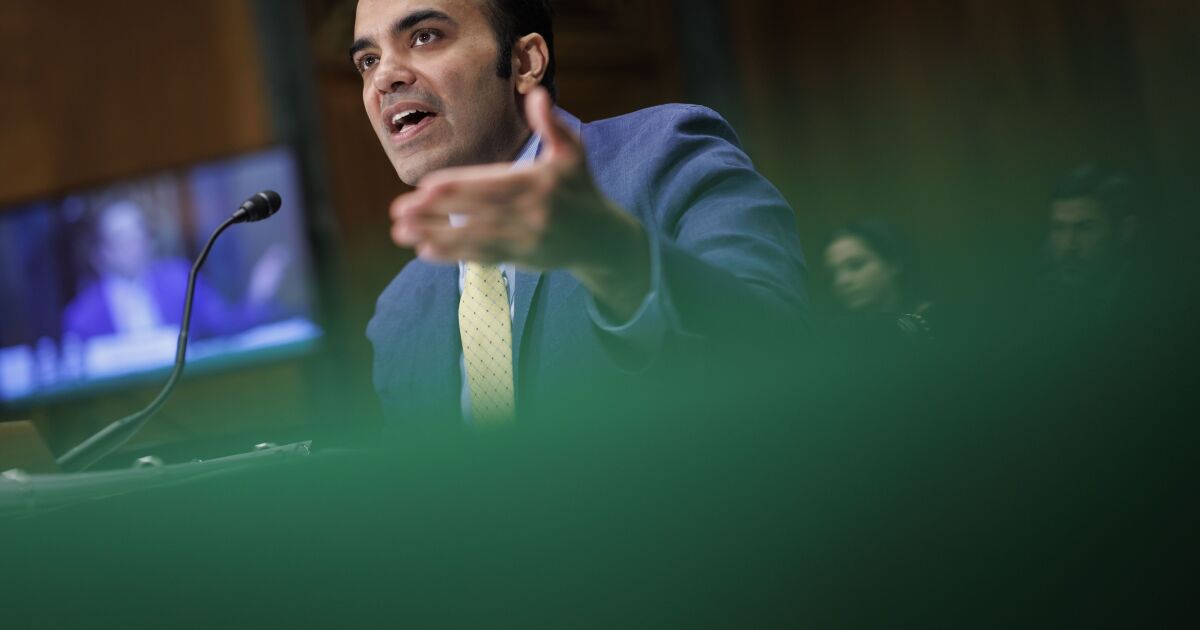
Generative artificial intelligence and other industry innovations could be a double-edged sword for borrowers as
"Advances in technology have the potential to help lenders lower their costs, reach more individuals and ultimately lead to refinancing for more. We want to see this in ways that work to benefit borrowers and the economy," Chopra said.
"However, if executed poorly, new mortgage technology could exacerbate some disparities or even make people worse off. We are on the lookout for how new mortgage tech could contribute, if implemented poorly, to discrimination, collusion or other illegal activity," he added.
One of the more striking concerns Chopra voiced at the meeting jointly hosted by the National Housing Conference and Intercontinental Exchange was an assertion related to mandatory disclosures around closing costs,
Despite all the effort that went into the federal disclosure regime, which is widely used as a historical benchmark for how difficult regulatory implementation can be, it only partially addressed issues with inflated closing costs that can serve as a barrier to refinancing, according to Chopra.
"Disclosure helps consumers compare, but many of the fees are not subject to robust competition. So while I agree, it's better to disclose a rip-off than to hide it, it's still a rip-off," Chopra said during the AI, technology and data event held at the New York Stock Exchange.
"Indeed, we have found instances of monopolistic practices that drive up closing costs," he added.
Specifically, Chopra reiterated some of the previous concerns he has voiced around multiple expenses borrowers get charged for at the closing table, including
He also noted
In addition, Chopra mentioned the charges borrowers pay for lenders' title insurance on their loans remains a concern, adding to speculation that
"Many borrowers looking to refinance are particularly puzzled when it comes to other costs like purchasing a new lender's title insurance policy that could cost thousands of dollars," Chopra said.
His concern appeared to be linked not only to the extent of the charge, but the disconnect with how owners' policies are treated.
"Even though these borrowers typically do not lose their owner's title insurance if they purchased one once they bought their home, the policy does not carry over to a new lender, usually, when they refinance," Chopra noted.
He also said there is a broader concern with the fact that, "under existing law and under certain investor requirements, lenders are required to redo some of the same steps that were completed by the borrower when they first financed their home.
"While the cost of many of these steps may be falling with greater automation and greater application of artificial intelligence, the repeated steps do add complexity and the potential for errors," Chopra said.
Another past point of concern Chopra said he's still looking at are challenges the industry faces in processing small loans, something the bureau
When asked about how this should be addressed, Chopra said he didn't have an easy answer to the question, but noted the bureau has "heard some input on the existing loan originator compensation rules and the extent to which how does that affect things.
"We are always interested in that," he said.
Chopra also confirmed during a question-and-answer session that he still thinks the mortgage business' growing nonbank share could lead to systemic risks.
"We laid out certain recommendations on how to address some of those risks. What was not addressed is whether there needs to be any sort of credentialed regulator for some of those nonbank mortgage companies," he said.
Chopra begged off questions about how monetary policy controlled by the Federal Reserve might affect refinancing prospects but did say he expects opportunities could grow for a limited number of loans with relatively higher rates, assuming other issues like closing costs or high tax and insurance expenses in some areas don't undermine their affordability.
"More than a fifth of all mortgages have rates above 5%. Of these 12.2 million mortgages, 7 million are above 6% and approximately 60% of those 7 million were originated in just the last two years," he said. "That means that as the rate environment changes, and rates go down, we think that millions and millions of borrowers could benefit from refinancing."
In closing, Chopra said that while he does potentially see a constructive role for AI, data and technology to play in housing, making it a matter of reality rather than hype requires addressing the types of concerns he identified.
"AI often is a branding term that companies use to boost their valuations or go to market with, but there are, in the mortgage industry, some very interesting uses of data," he said.
"It's very important that we figure out how to solve tangible problems like this refinancing one, rather than just sort of being cool," Chopra added.



